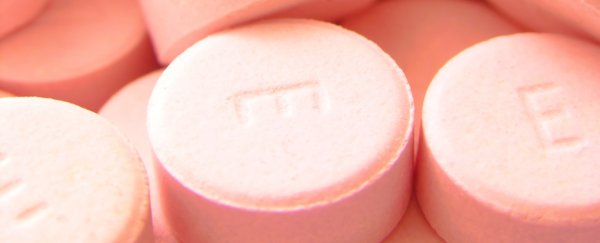MDMA may mostly be known as an illicit party drug, but this psychoactive chemical looks to offer therapeutic applications far removed from the highs of the rave scene.
In fact, MDMA-assisted therapy could soon become a legal and approved way to treat post-traumatic stress disorder (PTSD) in the United States.
In the first phase III clinical trial for any psychedelic-assisted therapy, MDMA has shown more potential to help treat PTSD with therapy than possibly any other medicine we've got.
After just three sessions, patients who were given MDMA during therapy were 35 percent less likely to meet the diagnosis for PTSD than those given a placebo.
At the two month follow-up, 88 percent of the volunteers who underwent MDMA-assisted therapy experienced a clinically significant reduction in their symptoms - 28 percent higher than those who received therapy with just a placebo.
"Far from having no medical benefit, MDMA, when combined with talk therapy in this protocol, has the potential to catalyze the therapeutic process and generate positive mental health outcomes," says Rick Doblin, the executive director of the Multidisciplinary Association for Psychedelic Studies (MAPS) in San Jose, California, which is running the trials.
MDMA is currently listed as a Schedule 1 drug in the US, designated for substances with no legitimate medical purpose. For years, scientists have been trying to overturn this status, and in 2017, after promising animal and clinical results, the FDA labeled MDMA a 'breakthrough therapy' for PTSD, as long as it was used in conjunction with psychotherapy.
Scientists still aren't really sure how the amphetamine works to assist therapy, but some speculate it creates a 'window of tolerance' where people can reflect on traumatic events without overwhelming themselves or experiencing dissociation.
Phase II clinical trials have already shown the drug has promising effects and is safe to use in regulated doses under supervision. Over the course of a year, 67 percent of patients who received two or three sessions of MDMA-assisted therapy no longer showed signs of PTSD. Only 23 percent of the control group saw the same benefits.
Phase III clinical trials are usually larger and longer, but because of COVID-19, the sample size in the latest experiment was a bit smaller than researchers had planned.
The study randomized 90 participants with severe and chronic PTSD into two double-blinded groups. The first group was given three MDMA-assisted therapy sessions while the other group was given a placebo during therapy sessions.
Over the course of the 18-week study, researchers found "significant and robust attenuation of PTSD symptoms" and a lessening of some depressive symptoms, too.
Even among people with the most difficult-to-treat PTSD, the novel form of therapy appeared to help.
"MDMA is an experiential therapeutic and therefore necessitates the appropriate set and setting to truly guide change and recovery," says neurologist Jennifer Mitchell from the University of California, San Francisco.
"While many forms of PTSD therapy involve recalling previous trauma, the unique ability of MDMA to raise compassion and understanding while tamping down fear is likely what enables it to be so effective."
The clinical trial did not directly compare MDMA to current drugs used to treat PTSD, such as the selective serotonin reuptake inhibitors (SSRIs) sertraline and paroxetine, but today, these medications are known to only work for some people, and they generally come with smaller benefits.
In similar clinical trials, participants treated with sertraline and a placebo have shown effect sizes no greater than 0.37.
"By contrast, the effect size of 0.91 demonstrated in this study between MDMA-assisted therapy and placebo with therapy was larger than that for any other previously identified PTSD pharmacotherapy," the authors write.
Further research is needed to compare current PTSD treatments with MDMA directly, but the authors hope their results mean MDMA will continue to be fast-tracked for FDA approval.
The second half of the phase III clinical trial is now underway, expanding the research to 50 more patients. Volunteers from the first half of the trial will continue to be followed for long-term research.
"Compared with current first-line pharmacological and behavioral therapies, MDMA-assisted therapy has the potential to dramatically transform treatment for PTSD and should be expeditiously evaluated for clinical use," the authors conclude.
The team hopes for FDA approval as soon as 2023.
The study was published in Nature.
